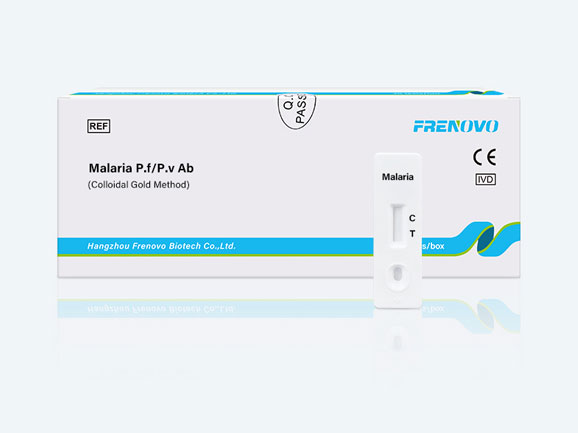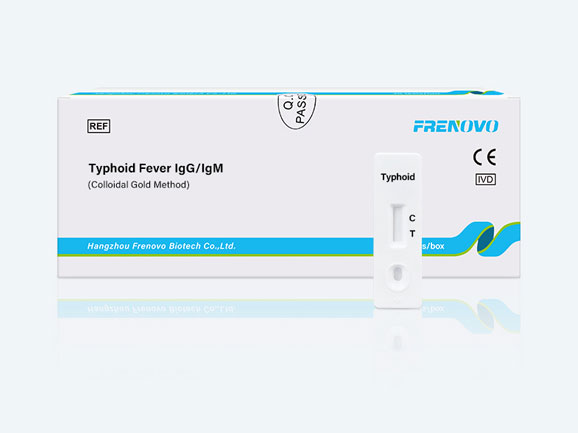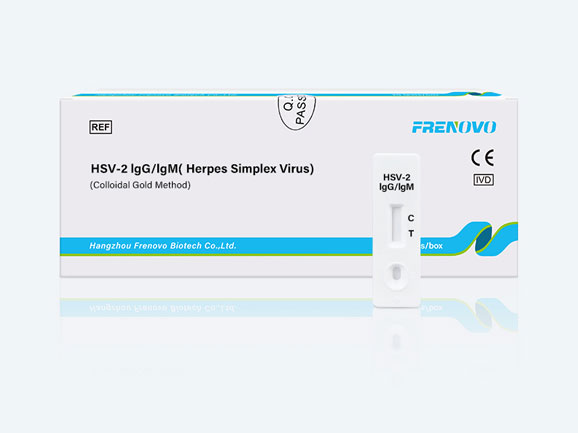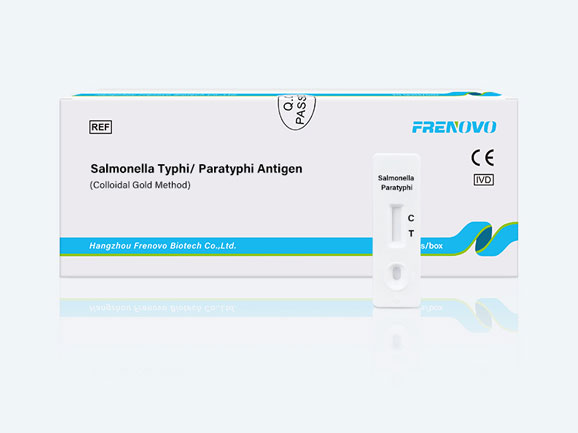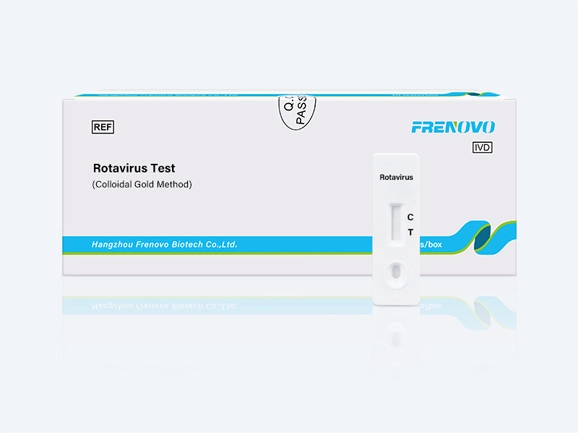

Rotavirus Rapid Test Device (Feces) is a rapid visual immunoassay for the qualitative, presumptive detection of rotavirus in human fecal specimens. This kit is intended for use as an aid in the diagnosis of rotavirus infection.
Rota Test Strip is a qualitative immunochromatographic assay for the determination of Rotavirus in stool samples. The membrane is pre‐coated with mouse monoclonal antibodies, on the test band region, against viral antigens. During testing, the sample is allowed to react with the colored conjugate (anti‐Rotavirus mouse monoclonal antibodies‐red microspheres) which was pre‐dried on the test. The mixture then moves upward on the membrane by capillary action. As the sample flows through the test membrane, the colored particles migrate. In the case of a positive result the specific antibodies present on the membrane will capture the colored conjugate. The mixture continues to move across the membrane to the immobilized antibody placed in the control band region, a GREEN colored band always appears.
The presence of this GREEN band serves as
1) verification that sufficient volume is added,
2) that proper flow is obtained and
3) as an internal control for the reagents.
Rotavirus is the most common agent responsible for acute gastroenteritis, mainly in young children. Its discovery in 1973 and its association with infantile gastro-enteritis represented a very important advancement in the study of gastroenteritis not caused by acute bacterial infection. Rotavirus is transmitted by oral-fecal route with an incubation period of 1-3 days. Although specimens collected within the second and fifth day of the illness are ideal for antigen detection, rotavirus may still be found while diarrhea continues. Rotaviral gastroenteritis may result in mortality for populations at risk such as infants, the elderly and immunocompromised patients.
In temperate climates, rotavirus infections occur mainly in the winter months. Endemics, as well as epidemics affecting some thousand people, have been reported. With hospitalized children suffering from acute enteric disease, up to 50% of the analyzed specimens were positive for rotavirus. The viruses replicate in the cell nucleus and tend to be host species-specific producing a characteristic cytopathic effect (CPE). Because rotavirus is extremely difficult to culture, it is unusual to use isolation of the virus in the diagnosis of infections. Instead, a variety of techniques have been developed to detect rotavirus in feces.

